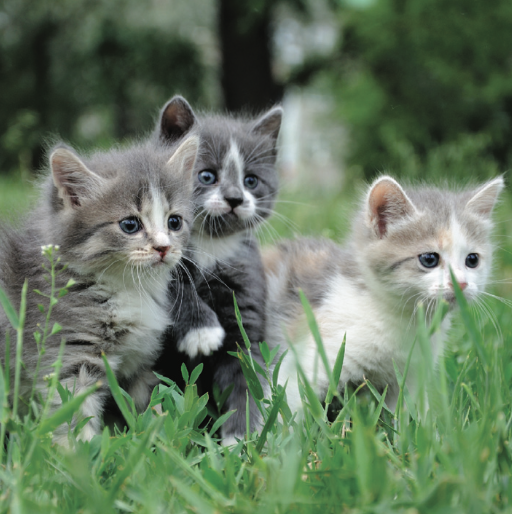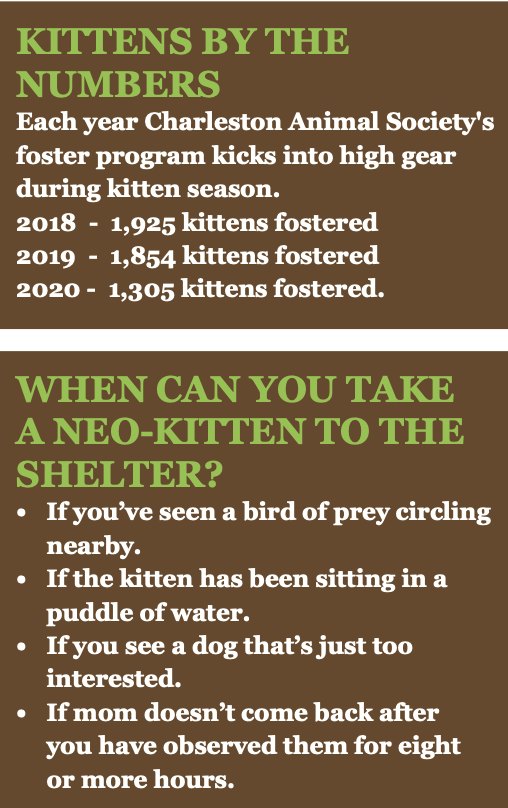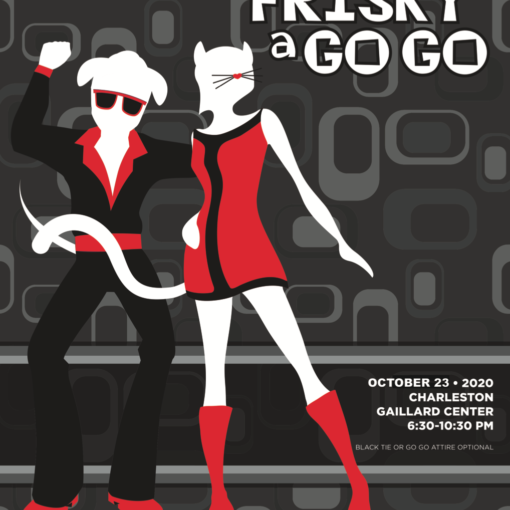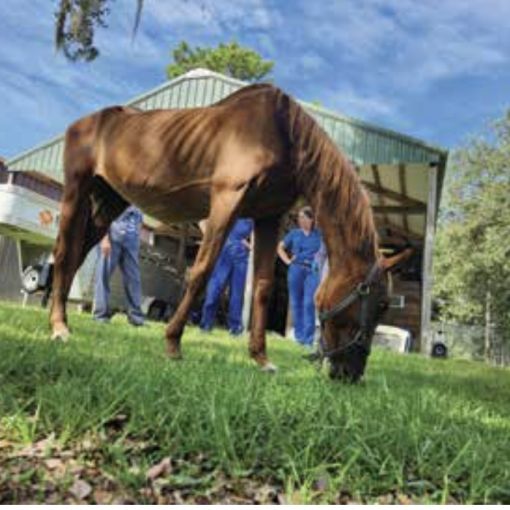By KATIE ROBISON
IT’S A BEAUTIFUL DAY IN MAY. YOU’RE
taking a stroll around your neighborhood, enjoying the warm weather, when you notice something unusual. A group of kittens huddled together in a drainage ditch—their mother nowhere to be seen. You think to yourself, “maybe I should take these kittens inside.” Then you stop, and think, “wait a minute, what if their mom comes back?” So instead, you “leave ‘em be.”
You made a wise choice! That’s the proper way to handle the influx of kittens that the warm weather brings every year according to Christina Ellwood and Jodi Osborne, Foster & Rescue Coordinators at Charleston Animal Society.
The Leave ‘em Be campaign asks concerned citizens to leave neo-kittens with their mother, giving them their best chance at surviving. “For us, a neo-kitten is anything under five weeks old,” says Ellwood, describing when kittens are too young to leave their mother. “If it’s a nice warm day, and you don’t think they’re in immediate danger, we ask that you try to leave them. Generally, mom will come back around.”
DON’T HOVER
Osborne reminds us not to hover, because it may scare the mom cat away. Typically, you should leave the kittens alone for at least eight to ten hours before worrying about whether or not mom is coming back.
At its core, kitten season represents a larger problem in the Charleston area. There are too many unneutered free-roaming cats “The whole community has to be willing to help, and know what to do in certain situations,” says Osborne.
GET INVOLVED

One way you can get involved is to volunteer and be willing to be a part of Charleston Animal Society’s nationally- recognized TVAR program. TVAR stands for Trap, Vaccinate, Alter, and Return-to- Habitat. The program was introduced as part of Charleston Animal Society’s initiative to reduce free-roaming felines in the Charleston area.
Anyone interested in being a part of this No-Kill Community effort can sign up at CharlestonAnimalSociety.org/foster. “There is no cost to that for Charleston County residents,” says Osborne. “And if someone doesn’t have the means to get a trap, people have the option to rent them at the shelter.”

Another way you can help is by bringing kittens in to shelter once they are old enough to be weaned from their mother. “Once the kittens are older, and walking around, that’s when the kittens can come to us. They’re ready. They don’t necessarily need their mom anymore to survive, and definitely if you have the means to bring the mom in as well, we will spay her and rerelease her too,” says Osborne.
The most challenging part is not bringing in kittens who are too young, because their best shot at survival will always be near their mom.
To learn more about kittens, visit
CharlestonAnimalSociety.org/baby-kittens.





